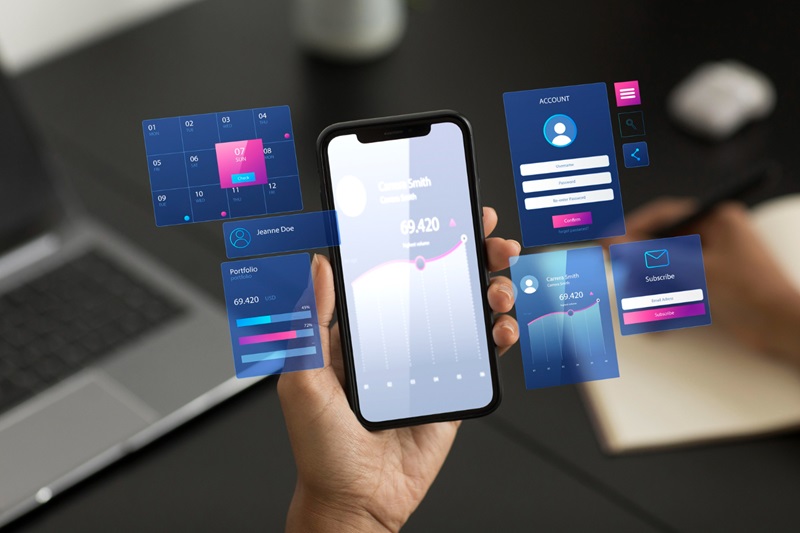Choosing the Right Mobile App Platform for Your Business: A Complete Guide
In the digital age, a mobile app can be a game-changer for your business. It offers a direct line of communication to your customers, enhances brand visibility, and provides a personalized experience. However, before you embark on the app development journey, one of the first and most crucial decisions you’ll face is which platform to choose: iOS, Android, or both.
This decision isn’t a simple one. It goes beyond personal preference and is rooted in understanding your audience, evaluating the specific features you want to implement, and assessing your budget for both development and maintenance. Making the right choice can propel your app’s success, while a poor decision can result in wasted time and resources.
In this comprehensive guide, we’ll walk you through several factors that should influence your decision. Let’s dive into the key aspects to consider when selecting the right platform for your mobile app.

1. Know Your Audience: Platform Choice Based on Location, Demographics, and Preferences
At the heart of this decision lies one core factor: your audience. The devices they use, their geographic location, and their purchasing behavior all play pivotal roles in determining which platform will serve them best.
Android dominates the global market, with a 74% market share as of early 2024. It’s particularly dominant in emerging markets such as Asia, South America, and Africa, where smartphone penetration is rapidly increasing. If your target audience is diverse and spread across the globe, especially in developing nations, Android could be the ideal choice.
iOS, with a 26% market share, is more popular in North America, Western Europe, and Australia. iPhone users tend to have higher disposable incomes, and iOS users are known to spend more on apps and in-app purchases. If your app provides premium features or caters to an affluent user base, iOS could be the better fit.
Questions to Consider:
- What devices do most of my customers use? Are they primarily Android or iOS users?
- Is my target audience in regions where Android or iOS holds a stronger market presence?
- Do my users have a higher propensity to spend on apps or in-app purchases?
Understanding these factors is crucial because they will directly affect both the user experience and your monetization strategy.
2. Functionality: Aligning Your App Features with Platform Strengths
Both iOS and Android have distinct technical strengths. Knowing which platform aligns with your app’s core features and functionality will ensure better performance, smoother user experiences, and enhanced app capabilities.
iOS is often the platform of choice for apps that require advanced technologies like Augmented Reality (AR), Artificial Intelligence (AI), or machine learning. Apple’s ARKit allows for the development of highly interactive AR apps, while iOS also offers strong security features, making it a good choice for apps requiring high data protection, such as banking or healthcare apps.
Android offers greater flexibility and customization, making it ideal for apps that need to interact with various types of hardware or work across different screen sizes. If your app needs to function on a wide range of devices (from budget phones to high-end models), Android will give you more flexibility in terms of device compatibility. Additionally, Android supports a variety of file formats and has robust customizability options, which can be critical if you plan to offer a unique user interface (UI).
Example Use Cases:
- A fitness-tracking app that integrates with smartwatches and other wearable devices might be better suited for Android, given the wide range of Android-based devices on the market.
- A fashion AR shopping app will perform better on iOS due to Apple’s ARKit, providing the kind of immersive shopping experience your users will appreciate.
Questions to Consider:
- What specific features does my app require (e.g., AR, AI, wearables integration)?
- Does the platform I’m considering support these features, or do I need custom development?
- How important is it that my app works across a wide range of devices or operates in a specific ecosystem?

3. Budget: Evaluating Development and Maintenance Costs
The financial side of app development cannot be overlooked. Your budget will heavily influence the platform you choose, as native apps for both iOS and Android can be expensive to develop. Each platform has its own unique development tools and programming languages (e.g., Swift for iOS and Java/Kotlin for Android), and you’ll need separate development teams for each platform if you opt for both.
However, there are more cost-effective options if you’re working with a limited budget:
-
Hybrid apps allow you to use a single codebase for both platforms. While this approach can save you time and money, hybrid apps tend to have lower performance and may not take full advantage of each platform’s native capabilities.
-
Progressive Web Apps (PWAs) are an even cheaper alternative. PWAs are essentially web-based apps that mimic native apps’ look and feel. While they’re more affordable and easier to maintain, PWAs are limited in terms of accessing certain device features, such as push notifications or camera functionalities.
Cost Breakdown:
- Native Development for Both Platforms: Best user experience but comes with higher costs. You’ll have to develop two separate codebases (one for iOS, and one for Android) and maintain both over time.
- Hybrid Development: More affordable, with a slightly reduced performance compared to native apps. Good for businesses looking for an entry-level solution but not prioritizing the highest possible performance.
- PWAs: Economical, easy to maintain, but with limited device feature access and slower performance compared to native apps.
Questions to Consider:
- How much can I allocate to app development and maintenance?
- Do I want a high-performance app with advanced features, or is a cost-effective, simpler app enough?
- Can I start with one platform, or is it essential to launch on both simultaneously?
4. Making the Decision: A Framework for Choosing the Right Platform for Your Business
At this point, you should have a clearer understanding of the factors involved. Now it’s time to weigh the pros and cons and make your decision.
- Global Reach: Choose Android if you’re targeting a global audience, especially in regions like Asia, South America, or Africa, where Android’s market share is significant.
- High ROI per User: Opt for iOS if your app is premium-priced and aimed at high-income users who are willing to spend more on apps and in-app purchases.
- Platform-Specific Features: Choose iOS for apps leveraging AR, AI, or high-end graphics. If you need more customization or flexibility, especially with hardware interactions, Android may be the better option.
- Budget-Friendly: If cost is a concern, consider hybrid apps or PWAs to develop a cross-platform app on a limited budget.

5. Testing the Waters: Can You Afford to Launch on Both Platforms?
If your budget allows, launching on both platforms may be the best route to ensure you reach the broadest possible audience. However, if you’re unsure, it’s a good idea to test your app on one platform first and gather feedback before scaling to the other platform. This approach minimizes risk while still allowing you to validate your app’s concept.
Final Thoughts
Choosing the right mobile app platform is a decision that requires careful analysis and planning. It’s not just about reaching a broader audience—it’s about delivering the best possible user experience for your customers and aligning with your business objectives.
At Naminouran, we specialize in helping businesses navigate the complexities of mobile app development. Whether you’re just starting to explore the possibilities or are ready to launch your app, we can provide expert guidance on platform selection, development strategies, and everything in between. Get in touch with us today, and let’s make your mobile app vision a reality.



